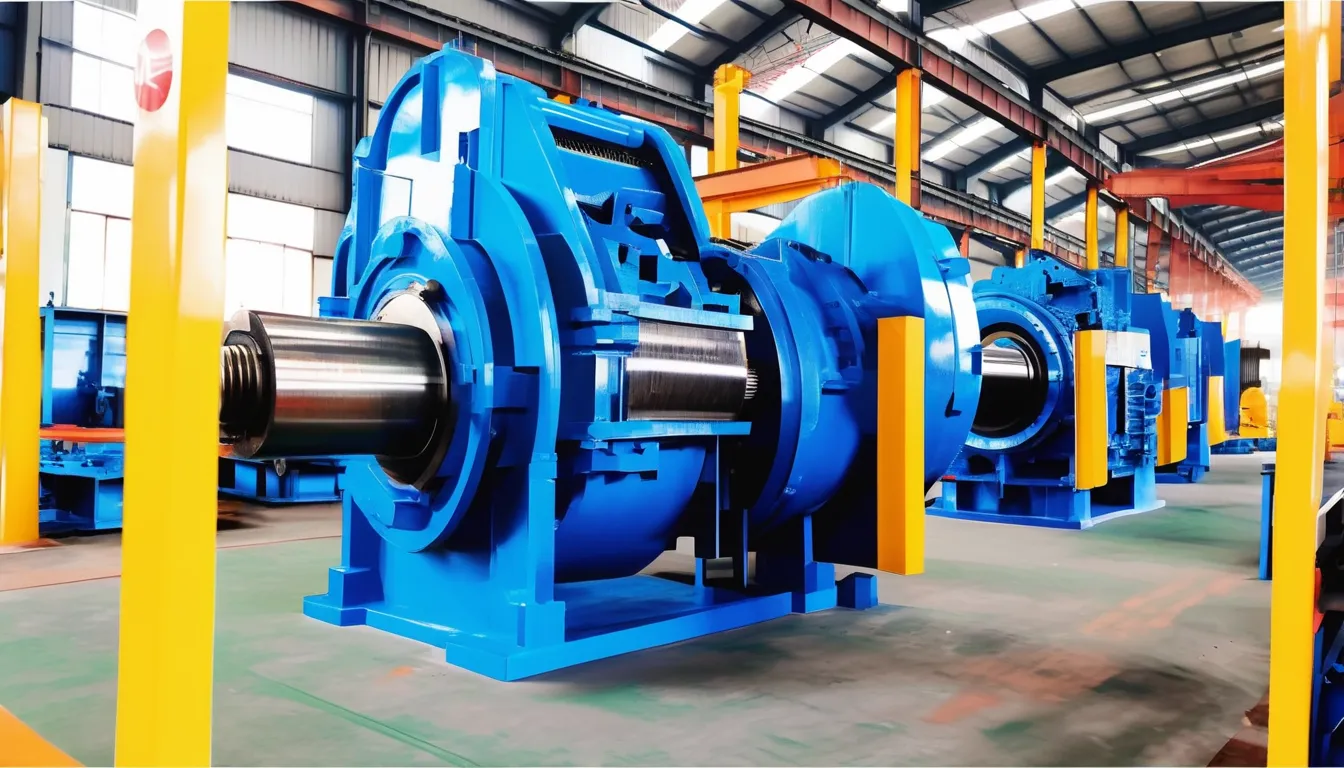When you consider gearbox manufacturing, the choice of materials can significantly impact performance and longevity. By integrating advanced materials like high-strength alloys and composites, you’re not just enhancing durability but also achieving weight reduction and improved efficiency. These innovations can lead to noticeable cost savings over time, despite initial investments. However, there are nuances to explore regarding their long-term benefits and potential challenges. What factors should you weigh when deciding whether to make the switch?
Enhanced Durability
When it comes to gearbox manufacturing, enhanced durability is essential for maximizing performance and longevity. You want your gearboxes to withstand the rigors of operation, and the right materials can make all the difference.
Advanced materials, such as high-strength alloys and composites, provide superior resistance to wear, fatigue, and thermal stress. These materials not only increase the lifespan of your gearboxes but also reduce the risk of failures that can lead to costly downtime.
Incorporating advanced coatings can further enhance durability by providing additional protection against corrosion and abrasion. You’ll find that these coatings can minimize friction, improving efficiency and reducing heat generation during operation.
Choosing materials with excellent impact resistance ensures that your gearboxes can handle sudden shocks without compromising performance.
Weight Reduction
Reducing weight in gearbox manufacturing can significantly enhance overall performance and efficiency. When you choose advanced materials like carbon fiber or titanium, you’re not just trimming down weight; you’re also improving the gearbox’s structural integrity.
A lighter gearbox means less inertia, allowing for quicker acceleration and deceleration in your machinery. This responsiveness can lead to better control and handling in various applications.
Moreover, weight reduction can lead to lower energy consumption. With a lighter load, your motors and engines can operate more efficiently, which can translate into cost savings over time. You’ll also notice less wear and tear on components, leading to a longer lifespan for your gearbox.
Another advantage of a lighter gearbox is the flexibility it offers in design. You can explore more compact configurations or even integrate additional features without compromising strength.
It opens up new possibilities for innovation and can help you stay competitive in the market.
Improved Efficiency
Efficiency in gearbox performance can be dramatically enhanced through the use of advanced materials. By opting for lighter and stronger materials, you reduce energy losses during operation. This means your gearbox can transmit power more effectively, resulting in higher overall system efficiency.
Here’s a quick comparison of material benefits:
| Material Type | Efficiency Improvement | Key Advantage |
|---|---|---|
| Carbon Fiber | 15-20% | Lightweight and strong |
| Aluminum Alloys | 10-15% | Good corrosion resistance |
| High-Strength Steel | 5-10% | Excellent wear resistance |
Using advanced materials not only boosts efficiency but also minimizes wear and tear. This leads to lower maintenance costs and prolonged service life for your gearbox. You’ll notice that with less friction and better load distribution, your system operates smoother than ever.
Incorporating these materials into your gearbox design isn’t just a trend; it’s a smart investment for anyone looking to enhance performance. So, whether you’re in automotive, aerospace, or industrial machinery, embracing advanced materials can give you the edge you need.
Corrosion Resistance
Corrosion resistance is crucial for ensuring the longevity and reliability of gearboxes in various applications. When you choose advanced materials for your gearbox manufacturing, you’re making a smart decision to combat corrosion effectively. These materials, often engineered with special coatings or treatments, can withstand harsh environments, reducing the risk of rust and degradation over time.
By incorporating corrosion-resistant materials, you enhance the durability of your gearboxes, which is vital for industries that operate in challenging conditions, such as marine, automotive, and industrial settings. You’ll notice that these advanced materials not only protect against moisture and chemicals but also maintain structural integrity, ensuring that your gearboxes perform optimally even under stress.
Moreover, when you invest in corrosion-resistant technology, you reduce the need for frequent maintenance or premature replacements. This means you can focus on productivity rather than worrying about equipment failure.
Ultimately, by prioritizing corrosion resistance in your gearbox manufacturing, you’re safeguarding your investment and ensuring your systems run smoothly for longer periods. You’ll appreciate the peace of mind that comes with knowing your gearboxes are built to withstand the test of time.
Cost-Effectiveness
Cost-effectiveness plays a vital role in gearbox manufacturing, especially when considering the long-term benefits of advanced materials. By investing in high-performance materials like carbon fiber or advanced alloys, you can significantly reduce maintenance costs and extend the lifespan of your gearboxes.
These materials offer superior strength and durability, meaning they can withstand harsher operating conditions without failing.
You’ll find that while the initial costs of advanced materials may be higher, the savings you gain over time can be substantial. For instance, fewer breakdowns and replacements lead to lower downtime and enhanced productivity.
Plus, advanced materials often improve energy efficiency, which can reduce operational costs.
Additionally, embracing innovative materials can enhance your competitive edge. As more companies prioritize sustainability, using advanced materials can position you as a forward-thinking manufacturer, appealing to customers who value eco-friendly practices.
Conclusion
Incorporating advanced materials in industrial gearbox manufacturer manufacturing isn’t just a trend; it’s a smart move that elevates your operations. You’ll enjoy enhanced durability, reduced weight, and improved efficiency, all contributing to better performance. Plus, the corrosion resistance offered by these materials means fewer maintenance hassles. While the initial investment might be higher, the long-term savings and benefits make it worthwhile. By choosing advanced materials, you’re positioning your business for success and staying ahead of the competition.



